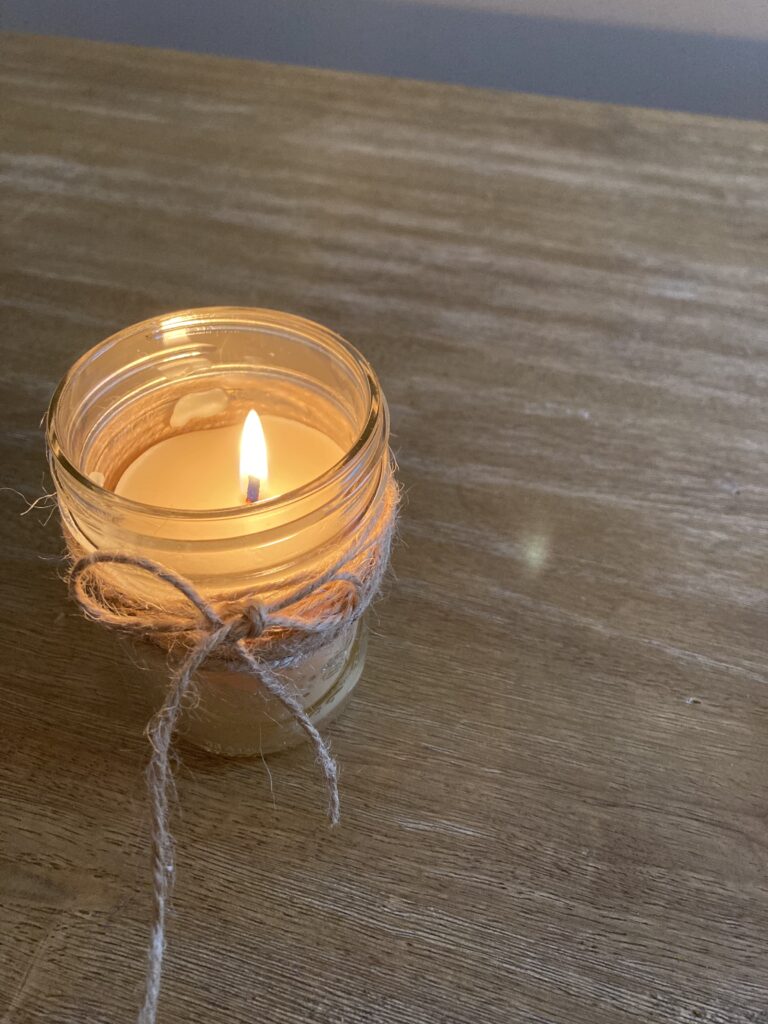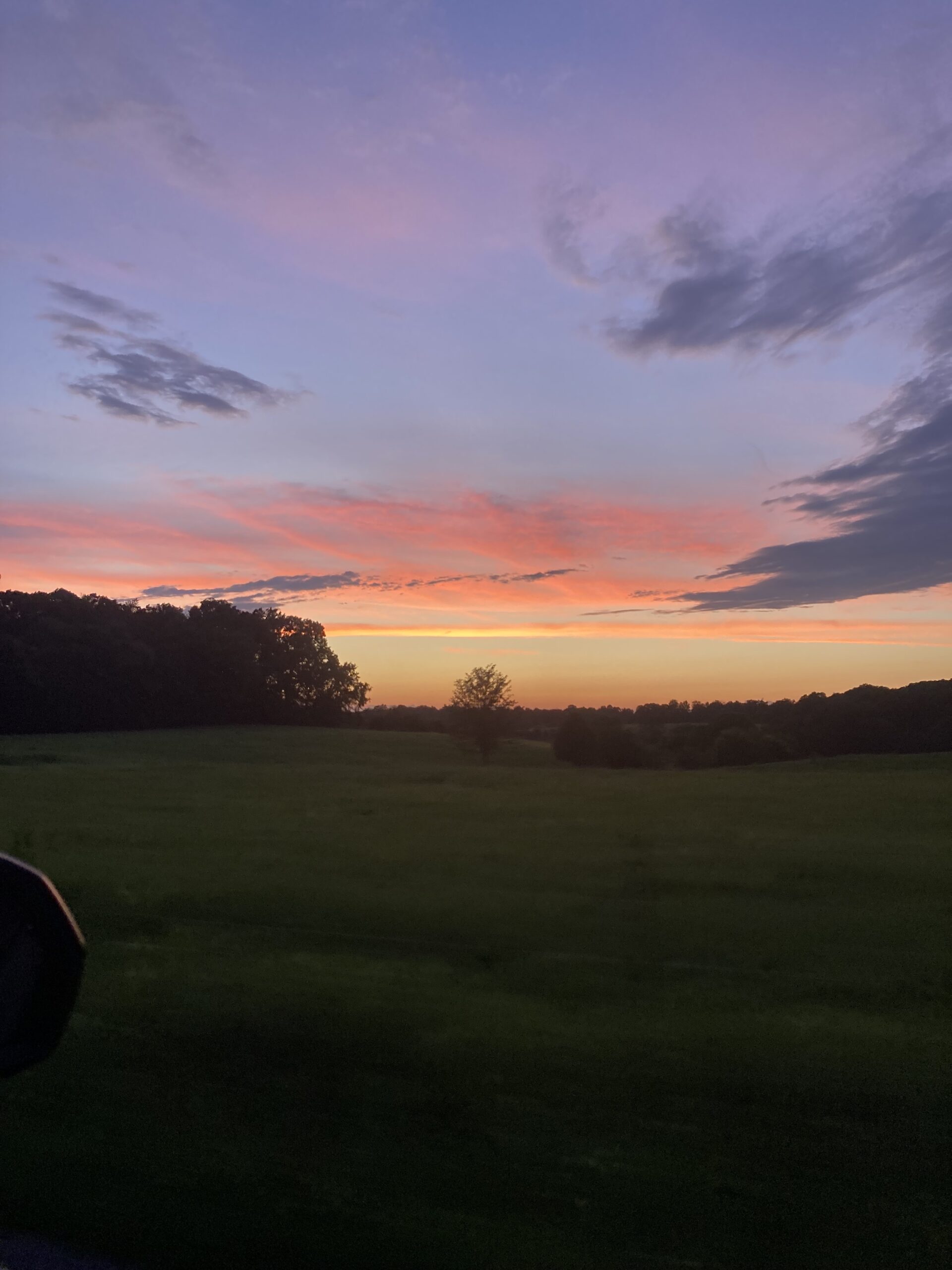When you can not sleep, do you scroll on your phone? Is sunlight one of the last things you want in your eyes when you wake up? Well, let me change your mind.
Dr. Andrew Huberman, professor of neurobiology and ophthalmology, recommends getting sunlight into your retinas without a window or glasses lens for 2-10 minutes at sunrise and sunset. Doing this, of course, without staring directly at the sun because that can damage your eyes, but exposing yourself to this light “affects mood, hormones, metabolism, sleep rhythm, dopamine, and your pain threshold. This even affects your ability to learn and remember information.” (Huberman, 2023). Are you convinced yet?
There are many ways you can attempt to fit this into your day. Though the season and weather might affect your routine, you could try to sit and drink your coffee/water outside in the morning before work when you are able to. Or go for an evening walk after dinner- which also will aid in peristalsis. I know not every job can accommodate this. At the moment, it is dark when I leave for work and dark when I get home from work. Despite this, if you can work it into your day, it would be very beneficial for your circadian rhythm.
Light exposure at night
The suprachiasmatic nucleus (SCN) is the leading player in our circadian rhythm. It is a group of nerves in the hypothalamus right above the roof of your mouth. Based on light exposure, this signals to your brain if it is daytime or nighttime. It initiates your wakefulness and sleep cycle.
This light triggers our melanopsin cells, which send signals to the pineal gland in your midbrain, located between your eyes. The pineal gland gets its name from the pine cone due to its shape. The pineal gland releases melatonin in response to light exposure or, more so, the lack thereof. It is essential not to expose yourself to bright light, such as your cell phone, at night because you suppress melatonin secretion. This action disrupts your circadian rhythm and sleep.
Minimizing stress
It is a common habit for many people to scroll on their phones before they go to sleep or if they cannot sleep. Even exposure to a bit of light between 10:00 PM and 4:00 AM can completely mess up our dopamine production and other hormones. I have noticed a lot of people are trying to counteract this by using low lighting like lamps and candlelight in the evenings. As well as limiting their exposure to electronics in the evening time to curate a wind down time before bed.
This could also be helpful from a stress standpoint. Because a lot of us associate our electronics with work, we may get emails or other tasks that we need to do after hours. At the end of the day, there isn’t much you can do with a late email besides stress and plan for the next day. As you can imagine, going to bed already stressed about the next day does not produce optimal sleep. So, it would be for our benefit to set an electronic curfew for ourselves so that we can rest better.

Night lights
Interestingly enough, light exposure doesn’t only affect us when we are awake but also when we are asleep. Dr. Andrew Huberman also mentioned a study by the University of Pennsylvania that concluded, “Children that sleep in rooms that have a night light or dim lights are much more likely to develop myopia (nearsightedness). Conversely, children that sleep in very dark rooms have a much lower, statistically speaking, significantly lower probability of developing myopia (nearsightedness).”
Early sunlight exposure
Morning exposure to sunlight not only helps you wake up but also releases dopamine—a mood-boosting hormone. Dopamine and cortisol secretions in the morning could help in combating symptoms of depression. Just the other day, I was encouraged by a friend to bundle up and go for a morning walk in the sunshine. So the other morning, I took her advice; in 25-degree weather, I walked. It was so refreshing and uplifting. I could tell a complete difference in my mood and energy. I aim to do this from now on, on my days off, if possible. Getting into this habit is great, especially for seasonal depression.
No matter what, every 24 hours, cortisol is released. You could time it to your benefit when trying to get energy and motivation in the morning or while exercising. Dr. Huberman States that his colleagues, David Spiegel and Bob Sapolsky, co-published a study that gave evidence to support that a cortisol release around the hours of 8 or 9 PM is associated with depression. That is why letting this release occur in the morning is beneficial.
Andrew Huberman states in his podcast, The Huberman Lab podcast, “In a series of large clinical trials, the conclusion has emerged that getting two hours a day of outdoor time without sunglasses has a significant effect on reducing the probability that you will get myopia, nearsightedness.” There is no down side to spending time outdoors, only benefits. I hope this information motivates you to get into God’s creation.
Encouragement
Nowadays, we are confined inside when we drive, at work, at home, and when we arrive at the places we are going. We seem to always end up indoors. Especially in the winter, getting outdoors becomes more and more difficult. It may be challenging, and you might not want to do it, but I encourage you to get outside as much as possible. Don’t let the weather hold you back this winter season.
Lord, thank you for today, the rest you give us, and for waking us up each morning. I pray that we won’t be slothful, no matter the season, but we will be proactive instead. Ready to serve you with willing hands. May we glorify you in all we do. To you all the glory, Amen.
SOURCES
Huberman, A. (” 021b, June 14). The Science of Vision, Eye Health & Seeing Better. YouTube. https://youtu.be/ObtW353d5i0
Huberman, A. (2021b, October 26). How light impacts your sleep and mood: Easy Daily Tactics from Dr. Andrew Huberman. YouTube. https://youtu.be/ZpUe3eWKeS4?si=utjm9ib4WgDw7VL8

